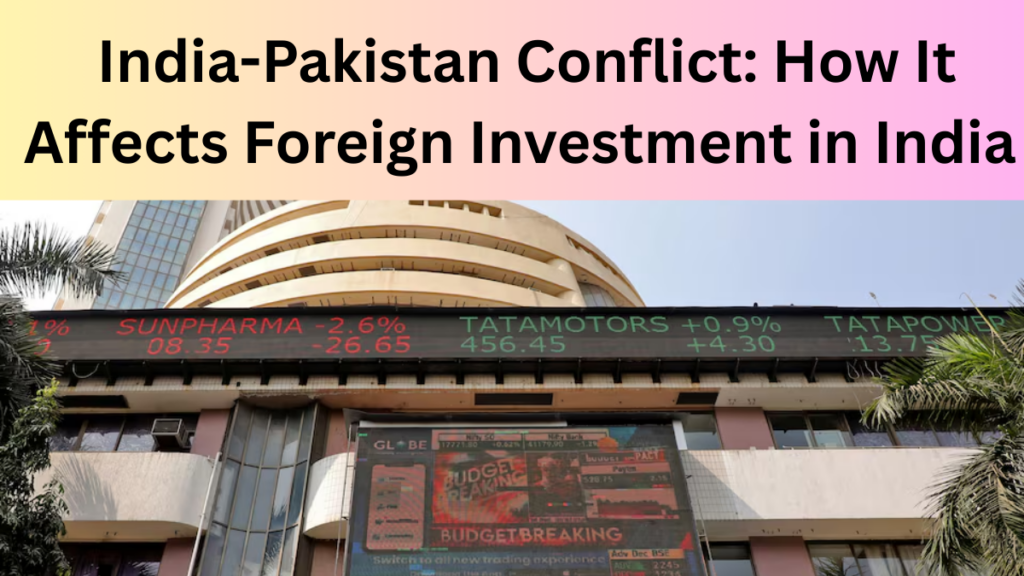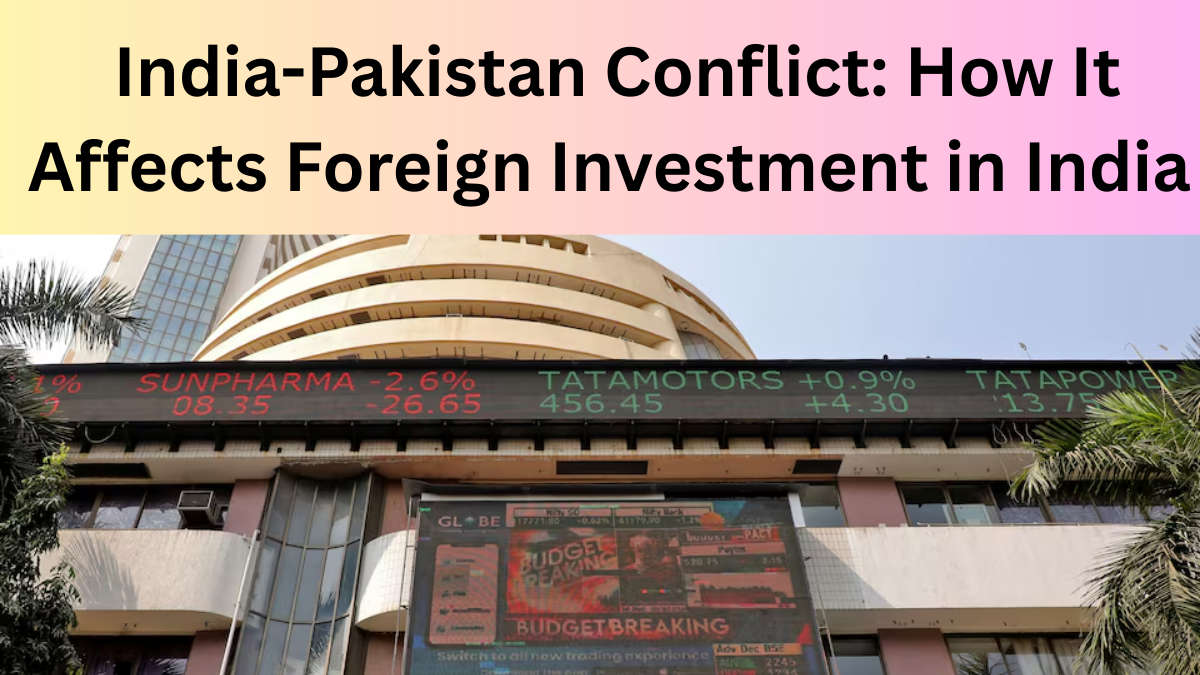Tensions between India and Pakistan have long cast a shadow over South Asia. While another episode of conflict may dampen optimism in global markets, India’s investment appeal continues to hold firm.
Despite short-term jitters, the country’s long-term fundamentals, expanding sectors, and policy reforms continue to offer promising opportunities for investors. Here’s a detailed look at the situation and what it means for global stakeholders.

The Geopolitical Context: India vs. Pakistan
India and Pakistan share a long, often tense history—especially over Kashmir. Border conflicts, skirmishes, and diplomatic stand-offs are not new to the region.
However, today’s global financial markets tend to react less drastically than in the past. Here’s why:
-
India’s economic fundamentals remain strong and resilient
-
The conflict is largely contained and controlled
-
Global investors are more experienced in managing geopolitical risks
Impact on Investor Sentiment: A Temporary Setback
Geopolitical risk naturally leads to caution in the markets. India’s ongoing tension with Pakistan could lead to:
-
A dip in foreign institutional investment (FII) flows
-
Short-term volatility in the stock market
-
Slight weakening of the Indian rupee
Still, most of this reaction is emotional rather than rooted in economic performance.
Investor Behavior Snapshot
| Factor | Impact Level | Remarks |
|---|---|---|
| Short-term equity markets | High | Likely to see dips and volatility |
| Long-term FDI confidence | Medium | Investors monitoring policy continuity |
| Currency (INR vs USD) | Medium | May experience brief depreciation |
| Defense and Infra Stocks | Positive | Government spending could boost demand |
India’s Economic Strength: The Silver Lining
Even amid conflict, India’s economy shows strength and adaptability. Many investors are focusing on these long-term benefits rather than short-term noise.
Key reasons India remains attractive:
-
Steady GDP growth rates
-
Government focus on business-friendly reforms
-
Rise of the digital economy and start-up ecosystem
-
A young, tech-savvy population contributing to productivity and demand
Sector-Wise Investor Outlook
Some industries gain during conflict periods, while others may need more caution. Here’s a breakdown of where investors are looking:
Sectors That Remain Strong
| Sector | Reason for Resilience |
|---|---|
| Defense & Aerospace | Government spending increases in response to tensions |
| Technology & IT | Global outsourcing and digital services remain unaffected |
| Pharmaceuticals | Defensive sector with consistent global demand |
| Infrastructure | Boosted by long-term public investment strategies |
Sectors That May Face Pressure
| Sector | Why Caution is Needed |
|---|---|
| Tourism & Hospitality | Travel concerns due to safety perceptions |
| Aviation | Affected by fuel costs and possible airspace disruptions |
| Export-Import Firms | Vulnerable to trade restrictions or logistical challenges |
What Should Investors Do?
Despite headlines, investors should remain steady and strategic. Short-term dips can often be opportunities if approached wisely.
Tips for navigating uncertainty:
-
Avoid impulsive reactions to market noise
-
Focus on sectors with strong domestic demand and government support
-
Use systematic investment plans (SIPs) to spread risk
-
Monitor geopolitical developments without losing sight of economic fundamentals
FAQs
1. Should foreign investors worry about the India-Pakistan conflict?
Some concern is natural, but seasoned investors understand that India’s long-term economic growth makes it a reliable option even during geopolitical tensions.
2. Which sectors benefit during times of geopolitical tension in India?
Sectors like defense, IT, and pharmaceuticals tend to perform well or stay stable due to government backing and global demand.
3. Will the Indian rupee weaken because of the conflict?
There may be temporary weakening due to capital outflows, but the Reserve Bank of India typically intervenes to stabilize the currency.
4. Is it still safe to invest in Indian markets now?
Yes, especially for long-term investors. The fundamentals of India’s economy remain robust, even in the face of geopolitical friction.
Final Thoughts
India’s friction with Pakistan might create temporary headwinds for investors, but it doesn’t dismantle the strong economic foundation the country continues to build on. With prudent strategies and a long-term outlook, investors can still find value and growth in India.
Click here to learn more




